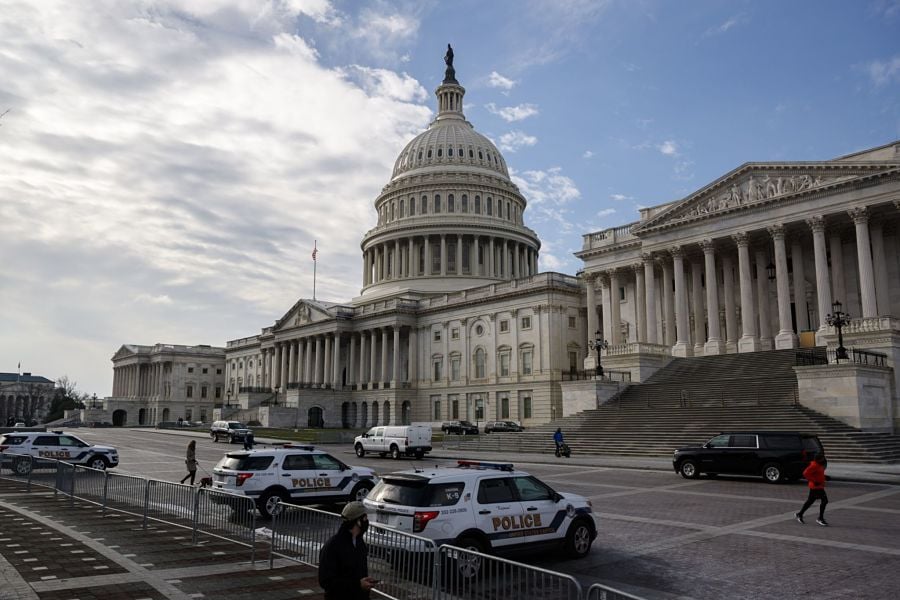

Senate Democrats introduced a bill Thursday that they say would close loopholes that allow the ultrawealthy to avoid taxes — an idea that investment advisors said would be difficult to implement but that does start a conversation about closing the wealth gap.
The lawmakers are taking aim at what they call a “buy, borrow, die” strategy that billionaires use to shield their assets from taxation. The “buy” part involves buying assets, such as stocks and real estate, that increase in value. They then borrow against the rising value of those assets to fund their lifestyles. When they die, they pass them on to their spouse or children while sidestepping taxes.
The Billionaires Income Tax Act would require that tradable assets, such as stocks, be marked to market and taxed annually, regardless of whether they’re sold, according to a summary of the bill. Nontraded assets, such as real estate or an interest in a business, would be taxed when they’re sold and would have an additional levy tacked on that captures the amount of gains that were tax deferred while the asset was held.
The policy changes would apply to people who have more than $1 billion in assets or more than $100 million in income for three consecutive years. That would encompass 700 taxpayers, according to the bill summary.
The goal of the legislation is to ensure that the country’s wealthiest people pay their fair share of taxes to support Social Security, Medicare and other programs. Sen. Ron Wyden, D-Ore. and chair of the Senate Finance Committee, wrote the bill, which has 15 Senate Democratic co-sponsors.
“Right now, the average billionaire can wriggle their way into a measly 8% tax rate while a nurse or firefighter making $45,000 is paying a 22% tax on their wages,” Wyden said on the Senate floor Thursday. “Here’s the real gut punch: Under current tax law ‘buy, borrow, die’ is perfectly legal. Pretty sickening reality. Tax laws simply don’t apply to billionaires in the same way they do to everybody else. They’re optional, while everybody else’s tax rules are mandatory.”
But the remedies in the bill won’t work as well as the lawmakers intend, said Brian Seay, founding partner of Capital Stewards. For instance, it may spur the wealthy to distribute assets to heirs sooner.
“Founders, executives, and investors could simply move assets to their children’s name earlier in the lifecycle of a company to avoid hitting the threshold,” Seay said.
In addition, the bill could be fighting the last war. With low interest rates in the early 2000s, buy, borrow, die made sense. But with higher rates, it’s now a less appealing strategy.
“Strategies of the last decade are not going to be the strategies of the next decade,” Seay said.
Another problem facing the attack on buy-borrow-die is the difficulty in valuing assets, said Ryan Johnson, founder of Hundred Financial Planning.
“Until you go to sell [the asset], you can’t be sure what the value is,” Johnson said.
Kathryn Kubiak-Rizzone, founder of About Time Financial Planning, is enthusiastic about the bill. She likes how it targets a narrow population to raise needed government funding.
“This is phenomenal,” Kubiak-Rizzone said. “This isn’t something an everyday person — even high-earning households — need to be afraid of. I’m sure it will be spun in a way that creates fear. But I hope it comes across that this is not affecting most people in a negative way.”
President Biden proposed a billionaires’ tax earlier this year that involved creating a new levy. Wyden also has previously introduced billionaires’ tax legislation. His latest bill addresses buy, borrow, die.
It’s a strategy that many advisors use for a range of clients.
“The loophole they’re talking about isn’t only used by billionaires,” said Julia Colantuono, founder of One Financial Design. “Tackling the wealth-gap problem the country has is a good thing. [But] it feels a little unfair. They’re not really tackling the concept. They’re just tackling some of the people who are taking advantage of the concept.”
Borrowing against assets is a tactic that Marcio Silveira recommends to his clients, who don’t meet the threshold of the billionaires’ tax.
“This is a strategy that’s effective,” said Silveira, an advisor at Silvergreen Sustainable Investments. “I want to provide the best advice to my clients.”
But buy-borrow-die can widen the wealth gap.
“I don’t think there’s any way the bill could pass,” Silveira said. “But it’s the start of a serious conversation. We need to address the inequality in our country, which has become extreme.”
The legislative prospects for the bill are uncertain. It may not be able to pass the Senate despite a 51-49 Democratic advantage in the chamber. The Republican House likely would reject it.
For the rest of the year, Wyden is focused on expanding the child tax credit, said spokesperson Nicole L'Esperance. “As far as the [billionaires’ tax] bill, he’ll continue to coalition build until the right opportunity arises,” she said.
Johnson of Hundred Financial Planning foresees a political stalemate on the bill.
“I would be surprised if Republicans and Democrats would agree on the nitty-gritty of when someone would be ineligible to take advantage of [the buy-borrow-die] strategy,” he said.

Relationships are key to our business but advisors are often slow to engage in specific activities designed to foster them.

Whichever path you go down, act now while you're still in control.

Pro-bitcoin professionals, however, say the cryptocurrency has ushered in change.

“LPL has evolved significantly over the last decade and still wants to scale up,” says one industry executive.

Survey findings from the Nationwide Retirement Institute offers pearls of planning wisdom from 60- to 65-year-olds, as well as insights into concerns.
Streamline your outreach with Aidentified's AI-driven solutions
This season’s market volatility: Positioning for rate relief, income growth and the AI rebound
